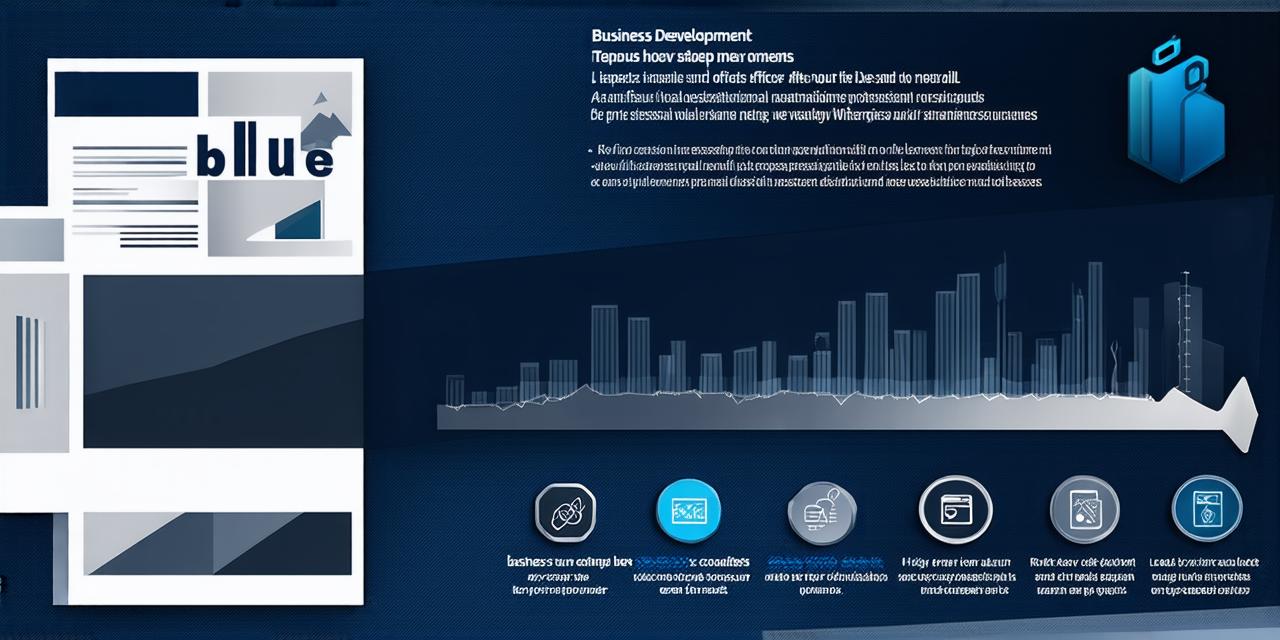A business development officer (BDO) is a critical member of any organization seeking to expand its customer base and increase revenue.
BDOs are responsible for identifying new business opportunities, developing relationships with potential clients, and working collaboratively with other teams to create and execute successful sales strategies.
Identifying New Business Opportunities
One of the primary responsibilities of a BDO is to identify new business opportunities. This may involve researching the market, analyzing competitors, and networking with potential clients.
By understanding the needs and pain points of potential customers, BDOs can develop targeted marketing strategies that address those specific challenges and demonstrate how their organization’s products or services can solve those problems.
Building Relationships with Potential Clients
Once a BDO has identified new business opportunities, the next step is to build relationships with potential clients. This may involve attending industry events, reaching out to prospective clients via email or phone, and scheduling meetings to discuss their needs and how the organization’s products or services can help.
Collaborating with Other Teams
A BDO’s work often involves collaborating with other teams within the organization, such as sales, marketing, and product development.
By working closely with these teams, BDOs can create integrated sales strategies that leverage the strengths of each team to achieve the organization’s goals. For example, a BDO may work with the marketing team to develop targeted campaigns that reach potential customers, while collaborating with the sales team to create compelling proposals and presentations that close deals.
Creating and Executing Sales Strategies
A BDO’s primary goal is to create and execute successful sales strategies that drive revenue growth for the organization.
This may involve developing pricing strategies, identifying key performance indicators (KPIs), and analyzing sales data to identify areas for improvement. By continuously refining and optimizing their sales strategies, BDOs can help their organization stay competitive in a fast-changing marketplace.
Key Strategies Used by Business Development Officers
There are several key strategies that business development officers use to achieve their goals. These include:
-
Networking
-
Market Research
-
Personalized Approach
-
Integrated Sales Strategies
-
Continuous Learning

Case Study: Sales Growth for a Technology Company
A technology company recently hired a business development officer to drive revenue growth and expand its customer base. The BDO began by conducting market research to identify new business opportunities and understand the needs of potential customers.
Based on this research, the BDO developed a personalized approach that targeted specific pain points of potential clients and demonstrated how the company’s products could help solve those problems.
The BDO also collaborated closely with the sales team to create integrated sales strategies that leveraged the strengths of each team. This included developing targeted campaigns, creating compelling proposals and presentations, and analyzing sales data to identify areas for improvement. By continuously refining and optimizing their sales strategies, the BDO helped the company achieve significant revenue growth and expand its customer base.
Key Takeaways
-
A business development officer is responsible for identifying new business opportunities, building relationships with potential clients, and working collaboratively with other teams to create and execute successful sales strategies.
-
Key strategies used by BDOs include networking, market research, a personalized approach, integrated sales strategies, and continuous learning.
-
By using these strategies effectively, BDOs can help their organizations achieve revenue growth, expand customer bases, and stay competitive in a fast-changing marketplace.
FAQs
Q: What are the key responsibilities of a business development officer?
A: A BDO is responsible for identifying new business opportunities, building relationships with potential clients, and working collaboratively with other teams to create and execute successful sales strategies.
Q: How do BDOs use market research to achieve their goals?
A: BDOs use market research to identify new business opportunities and understand the needs and pain points of potential customers. By analyzing market trends, conducting surveys and focus groups, and reviewing competitor analysis reports, BDOs can develop targeted marketing strategies that address specific customer challenges.
Q: What is a personalized approach in business development?
A: A personalized approach is key for building strong relationships with potential clients. By taking the time to understand their needs and pain points, BDOs can create customized solutions that demonstrate how their organization’s products or services can help solve those problems. This approach helps build trust and credibility with potential clients, increasing the likelihood of long-term partnerships.
Q: How do BDOs use integrated sales strategies to drive revenue growth?
A: BDOs use integrated sales strategies by working closely with other teams within the organization to create comprehensive sales plans that leverage the strengths of each team to achieve the desired outcomes. This may involve developing targeted campaigns, creating compelling proposals and presentations, and analyzing sales data to identify areas for improvement.
Q: What are some key takeaways from this article?
A: Some key takeaways from this article include the importance of identifying new business opportunities, building relationships with potential clients, collaborating with other teams, creating and executing successful sales strategies, using market research and a personalized approach, continuously learning and staying up-to-date with industry trends.
